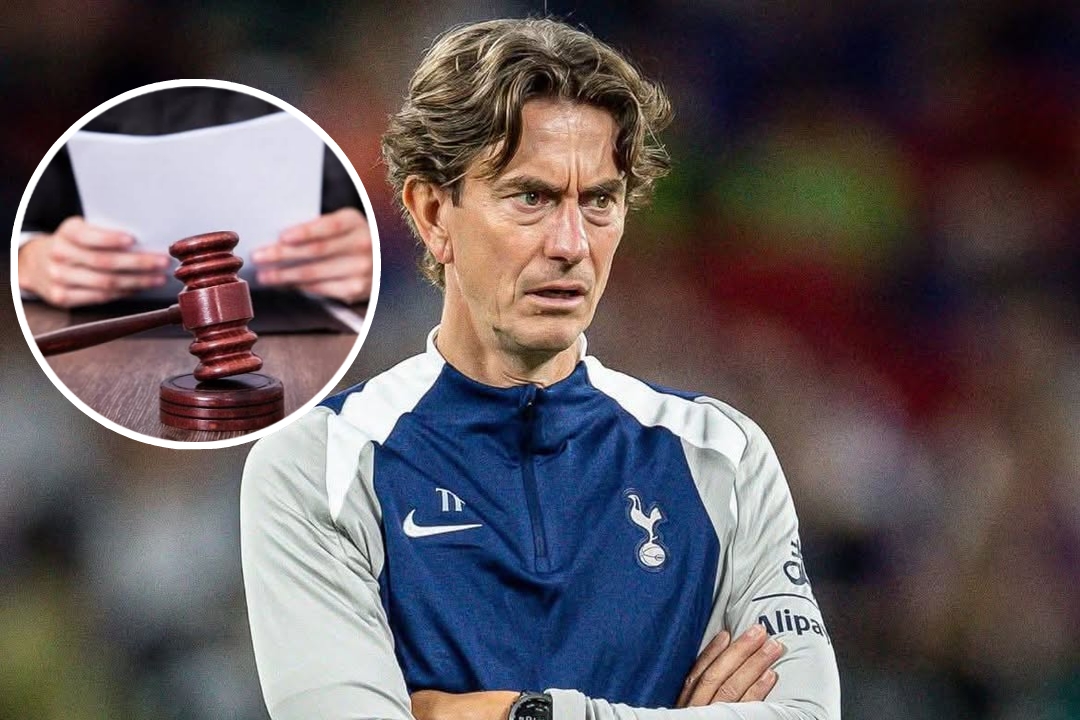NUNO ESPIRITO SANTO ISSUES STRONG FIVE WORD STATEMENT TO NOTTINGHAM FOREST AND EVANGELOS MARINAKIS AFTER POSTEGLU SACKING
The chaos at Nottingham Forest has reached yet another boiling point. Less than two months after replacing Nuno Espírito Santo, Ange Postecoglou has been sacked following Forest’s humiliating 3-0 defeat to Chelsea at the City Ground on Saturday.
But just as fans were still processing the news, Nuno himself reportedly fired a sharp five-word warning aimed directly at Evangelos Marinakis and the Forest boardroom.
His words?
> “Respect the process or expect consequences.”
A Club in Crisis
This is now three managerial changes in less than a year at Nottingham Forest. The decision to sack Postecoglou, confirmed by Reuters and The Guardian, came just 18 minutes after full-time, marking one of the swiftest dismissals in Premier League history.
Forest’s defeat to Chelsea was brutal — not just in scoreline, but in symbolism. A flat performance, defensive errors, and visible frustration among players painted the picture of a club without identity.
According to Sky Sports, Marinakis left the stadium before the final whistle and immediately summoned key board members. Within the hour, Postecoglou was gone.
For many, including Nuno Espírito Santo, this was déjà vu.
Nuno’s Five-Word Message — A Warning, Not a Whine
When Nuno was dismissed in early September, many believed it was unjust. He had delivered Forest’s best league finish in decades and even secured European qualification. His departure was reportedly due to “philosophical differences” with Marinakis rather than on-pitch results.
Now, with Postecoglou gone after just 39 days in charge, Nuno’s cryptic message seems prophetic.
> “Respect the process or expect consequences.”
Those five words encapsulate what he had tried to implement: a sustainable footballing structure built on patience, system cohesion, and trust between the manager and ownership.
But in Nottingham, patience seems a foreign concept.
The Pattern Everyone Sees but Nobody Admits
Nuno’s message is more than a dig — it’s an analysis of a pattern that has haunted Forest since their return to the Premier League.
Let’s look at the timeline:
2024/25 Season: Nuno Espírito Santo guides Forest to a 7th-place finish and Europa League qualification.
Summer 2025: Reports emerge of tension between Nuno and Marinakis over recruitment and decision-making.
8 September 2025: Nuno is sacked.
9 September 2025: Ange Postecoglou appointed — the “new era” begins.
18 October 2025: Forest lose 3–0 to Chelsea. Postecoglou sacked within minutes.
In less than 45 days, Forest have burned through two managers.
According to The Times, Marinakis is “determined to restore control” over the club’s footballing decisions — but that very control is what former coaches argue is suffocating the team’s progress.
What Nuno Really Meant
When Nuno said “respect the process,” he was talking about the foundations that make a football club sustainable:
1. Continuity – Building a system takes time. Forest have had seven permanent managers since promotion.
2. Clarity in roles – Owners, sporting directors, and coaches must have aligned visions.
3. Trust – Managers must be given space to implement ideas without daily interference.
Nuno’s “expect consequences” is equally deliberate. He’s seen the fallout: a divided dressing room, low morale, and fans who feel alienated from the club’s identity.
It’s not bitterness. It’s a warning.
Marinakis and the Reaction
Sources close to the Forest owner, Evangelos Marinakis, told The Guardian that he was “furious” after Saturday’s defeat and believes the club “requires a cultural reset.”
But fans on social media are not buying it.
One supporter wrote on X (formerly Twitter):
> “Marinakis has turned Forest into a manager graveyard. You can’t build stability if you change coaches every month.”
Another added:
> “We backed Nuno, then Ange, and now who? Dyche? It’s not the managers — it’s the system.”
Marinakis reportedly plans to appoint Sean Dyche as the next head coach — a move expected to be confirmed in the coming days. (The Guardian, Oct 20 2025)
The Dressing Room Mood
Inside sources described the dressing room as “deflated and uncertain.” Players who had adapted to Nuno’s pragmatic style struggled to adjust to Postecoglou’s high-pressing, expansive tactics.
Midfielder Ryan Yates reportedly addressed teammates after the Chelsea defeat, urging calm but admitting:
> “We can’t keep changing styles every month. Nobody knows what the plan is anymore.” (TalkSport, Oct 19 2025)
That internal confusion underscores Nuno’s central argument: the lack of process is the root of Forest’s crisis.
A Broader Lesson for Modern Football
Nuno’s five words may well become a case study in managerial philosophy. Modern football is filled with impulsive ownership decisions, but successful clubs — like Brighton, Brentford, or even Aston Villa — show that trusting the process breeds results.
Forest, by contrast, seem addicted to short-term fixes.
The academic takeaway is clear: process discipline is a form of organizational stability. In football, that means defining a coherent identity and resisting the temptation to rebuild every few months.
Nuno’s statement, therefore, isn’t just directed at Marinakis — it’s a broader critique of the Premier League’s “results-first, strategy-later” culture.
What Next for Forest?
As of Monday morning, Forest are reportedly finalizing talks with Sean Dyche, who could bring stability and discipline to a fractured squad. But even Dyche will face the same question: will he be allowed to build a project, or will he be another name on Marinakis’s managerial list?
The answer will define Nottingham Forest’s season — and perhaps their Premier League future.
Final Thoughts
Nuno Espírito Santo’s five-word statement — “Respect the process or expect consequences” — might sound like a simple jab, but in truth, it encapsulates everything wrong with Nottingham Forest’s current structure.
He warned them once.
They didn’t listen.
Now, as another manager walks out the door and the club spirals deeper into instability, his words echo louder than ever.
Unless Marinakis and his board learn to trust the process, Nottingham Forest’s cycle of chaos is destined to continue — and those consequences may soon extend beyond the dugout.








Post Comment